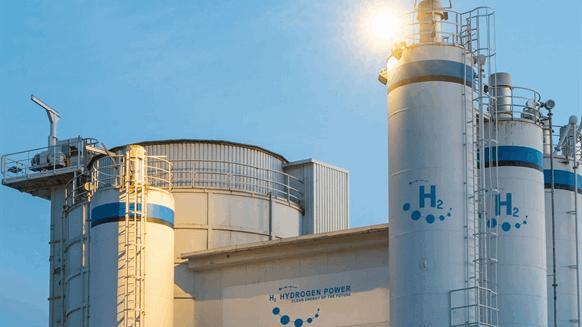
BP has received funding to build a 100 MW green hydrogen project next to the Lyngen refinery in Germany. In a press release, the German Ministry of Economy and Climate Action announced 23 projects covering the hydrogen value chain, which will provide a total of $5 billion in financing to federal and state governments as part of an important project of common interest in Europe.
Firstly, the project aims to install a 100 megawatt electrolyzer that can produce an average of 10 to 11 thousand tons of green hydrogen annually. The renewable energy required for the electrolyzer is expected to be initially provided by an offshore wind power purchase agreement. The green hydrogen produced by this project has the potential to support industrial customers such as steel and chemical producers in achieving decarbonization of production processes in the region. The German Federal Minister of Economy and Climate Protection has announced the approval of the construction of three digit megawatt scale electrolyzers, which will make significant progress in promoting domestic production of green hydrogen. Efficient hydrogen infrastructure plays a key role in achieving decarbonization in the industrial and energy sectors. Hydrogen pipelines will become the lifeline of industrial centers and create conditions for climate neutral growth.
Secondly, hydrogen pipelines will become the lifeline of industrial centers, creating conditions for climate neutral growth. Multiple projects are forming cross state clusters of pipeline, storage, and power generation infrastructure, connecting with industrial customers in energy intensive industries such as steel and chemical. The IPCEI pipeline project is also an important component of the hydrogen core network, which will enable Germany to rapidly and economically develop its hydrogen transportation network by 2032. Germany's funding accounts for $7.5 billion of the plan, which is the third hydrogen infrastructure financing program under the important European common interest project, provided in the form of national aid. The plan was proposed by France, Germany, Italy, the Netherlands, Poland, Portugal, and Slovakia, and was approved by the European Commission in February last year.
In addition, last month, the European Commission approved Germany's proposed € 3 billion guarantee plan for its hydrogen core network project. The hydrogen transportation network plan spans across the domestic border of Germany, with a total length of 9700 kilometers, of which about 60% will be reconstructed from existing natural gas pipelines. According to the project implementation party, an additional 17 potential hydrogen delivery network operators will contribute a total length of 710 kilometers.
Transportation and storage infrastructure will play a crucial role in the development of the hydrogen economy. The facility planned to be built in Gronauepe will use two caves to store hydrogen, and the storage plant aims to balance the fluctuations of hydrogen generated by wind and solar energy. In this way, hydrogen can be provided to industrial customers according to the company's needs, and the first batch of hydrogen will be stored in the facility in 2026. As part of the project, Rostock Port will construct a 100 MW electrolyzer and begin producing green hydrogen gas from 2027. Part of the hydrogen will be supplied to local consumers, while the rest will be fed into the hydrogen core power grid currently under development throughout Germany.
Overall, the support from the German government will be provided in the form of guarantees for transmission system operators, which will help to obtain preferential loans to compensate for initial losses during the project start-up phase. According to last year's updated national hydrogen strategy, Germany plans to achieve 10 gigawatts of electrolysis capacity by 2030. As Germany strengthens its domestic hydrogen value chain, the Federation of German Automobile Manufacturers predicts that the country will soon develop an import strategy for hydrogen energy and hydrogen derivatives. This aims to provide guidance and clarity for the overall goals and framework conditions, Germany's import demand for hydrogen energy and derivatives, as well as the establishment of hydrogen energy partnerships and import corridors.

Since 2025, the conflict between the United States and Europe over the governance of the digital economy has continued to escalate.
Since 2025, the conflict between the United States and Euro…
When German Chancellor Mertz officially announced that he w…
On December 3rd local time, the copper price on the London …
The European Commission announced a new economic security s…
The European Commission announced a new economic security s…
For nearly a year, US President Donald Trump has launched a…